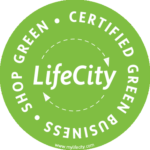Schmelly’s Dirt Farm is an organics recycling company that produces high-quality compost and soil products for the farmers & gardeners of Greater New Orleans. Since 2014, we have composted over 7 million pounds of organic material that would have otherwise ended up in landfills.
Schmelly’s mission is to transform New Orleans’ food scraps into healthy soil while fostering meaningful, uplifting jobs.
Our vision is to work together to examine and dismantle social constructs of oppression such as racism, patriarchy, and the gender binary by building the capacity of co-workers to communicate across differences through professional development opportunities.
Who We Are
Schmelly’s is part of a community-wide effort to transform organic materials into living soil & garden products. We partner with businesses, community programs, farms, community gardens, and everything in between.
Schmelly’s Dirt Farm got it’s start in 2014 at Hollygrove Market & Farm when Nicola Krebill helped her friend Alyssa from Rise Up Compost pickup food scraps from a few businesses in New Orleans to make compost for the community farm in Hollygrove. Along with the city’s need for healthy garden soil, there was a growing demand for commercial compost pickup service. Schmelly’s was born. One of the initial & ongoing goals of Schmelly’s is to provide employment opportunities to alumni of Grow Dat Youth Farm, which has it’s roots at Hollygrove Market & Farm. Nicola is also a member of the neighborhood food sharing project, Community Kitchen Collective, a volunteer-run free food sharing program that rescues food that would otherwise go to waste and cooks 100 meals each week. All of the people and organizations above were the nurturing soil that helped grow Schmelly’s Dirt Farm.
Schmelly’s partners with a variety of small and large organizations that support growers throughout Greater New Orleans. We donate compost and mulch to community gardens and farms. We partner with Compost N.O.W. to support their free program collecting frozen residential food scraps across the city. Check them out if you are interested in residential compost options close to where you live. We also partner with SPROUT, a Louisiana grower support organization, with community composting advocacy and outreach.
Our Values
As a member of the ILSR Community Composter Coalition and LifeCity, we align ourselves with the social justice and sustainability values as articulated by these two organizations.
Note: These values were taken from the Social Justice Subcommittee of the Community Composter Coalition and were created to help motivate and guide composters to take an active role in addressing social justice issues in their communities. We agree 100% with them and hope you do too!
- We consider and protect the generations yet to come in our decision-making.
- We plant seeds for the future by engaging youth in the composting process.
- We build bridges and advance partnerships that serve all members of our community.
- We resist hierarchies of oppression and form strategies with an inclusive mindset.
- We try to do no harm. We aim to be intentionally aware of the impacts our operation has on its natural environment and wary of decisions that affect our community.
- We empower change. We operationalize plans, policies, and practices that offer tools, resources, and when appropriate, space for decision making to marginalized identities in society in order to be active in true systematic change.
- We create a safe space for diversity. We create organizational policies that provide a safe space for all members of our community, staff, and volunteers through zero tolerance for various forms of oppression and through clear conflict resolution processes.
- We acknowledge the ways in which our employees and contractors are privileged.
- We seek to understand the mechanisms that perpetuate oppression such as attitudes, bias, and behaviors (e.g., racism, sexism, ageism, heterosexism) by those in a position of privilege.
- We create opportunities for respectful employment, by hiring and leadership development practices that are inclusive, provide living wages, and offer pathways to develop new skills and attain partnership or ownership.


